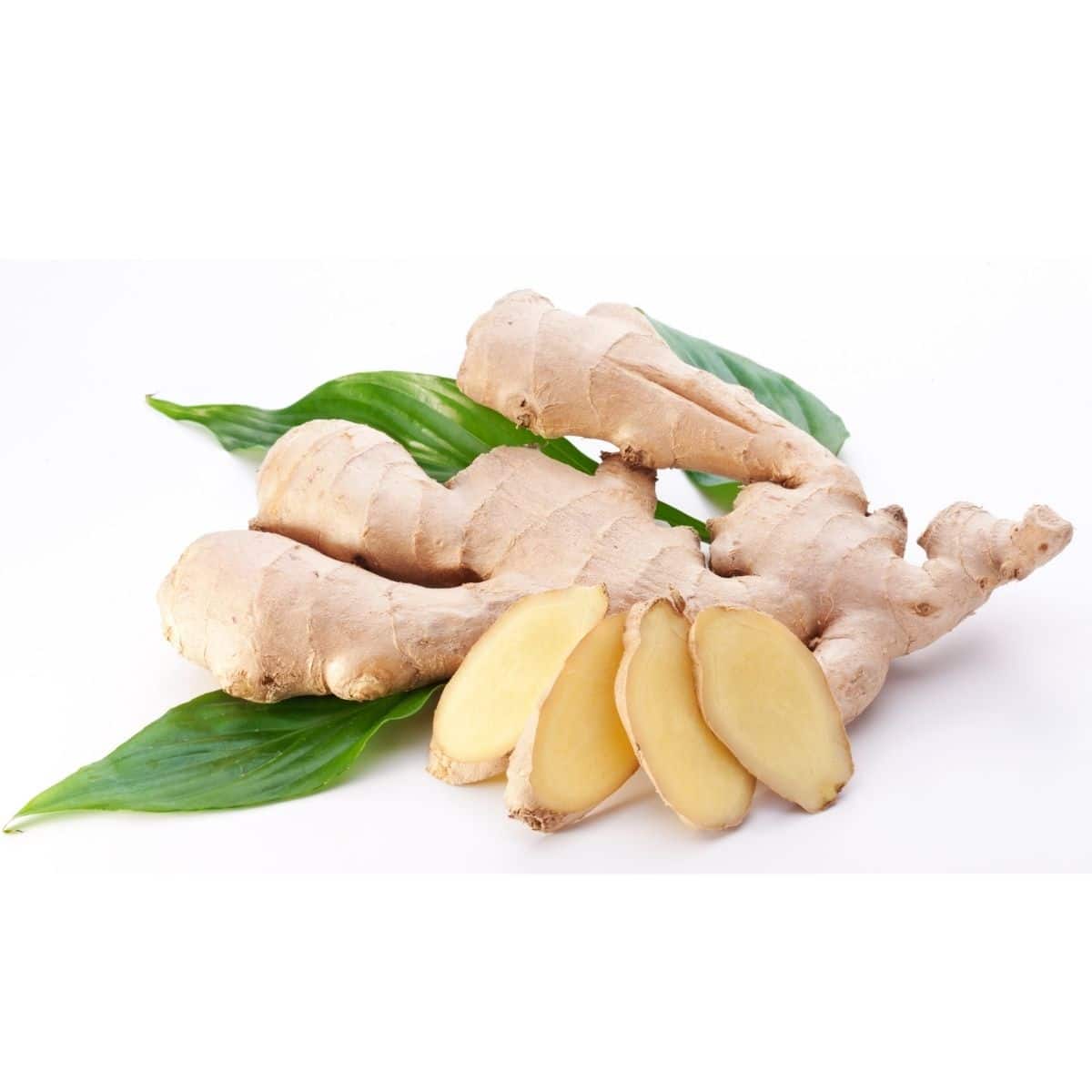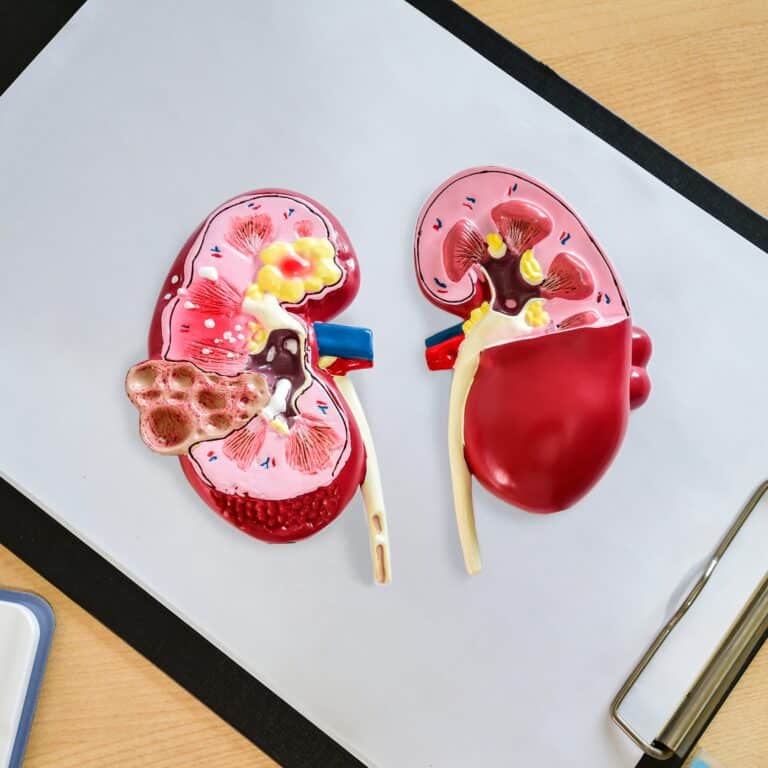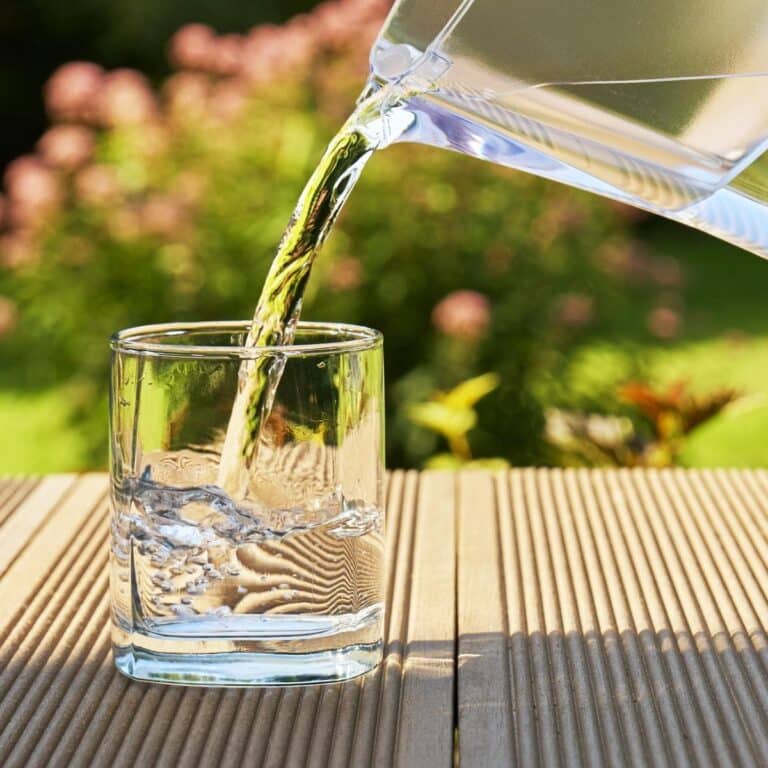Is Ginger Good For Kidneys?
Ginger is a spice that has been used for centuries as both an herbal remedy and traditional cooking ingredient. It's known to have many health benefits, including aiding digestion, helping fight inflammation, and providing relief from nausea. But did you know that ginger may also be good for your kidneys.
Let's explore the potential health benefits of consuming ginger for kidney health and how it might help support healthy renal function.
The human body is incredibly complex and fascinating; however, all too often our internal organs are overlooked or taken for granted until problems arise.
Our kidneys play a vital role in filtering toxins out of our blood and maintaining proper balance between different chemicals in the body; thus keeping us healthy overall.
With its antioxidant properties, anti-inflammatory effects, and ability to improve circulation - ginger has a lot of potential when it comes to kidney health benefits. Check out these steps to improving kidney health.
As a Registered Dietitian with over 25 years of experience in renal nutrition, I help individuals with Chronic Kidney Disease (CKD) understand which foods, like fresh ginger, can be beneficial or harmful to their health.
My recommendations are based on evidence-based guidelines to ensure CKD patients can safely incorporate flavorful, kidney-friendly ingredients into their diet. At Renal Diet HQ, I provide expert, research-backed advice to support kidney health while making meals both nutritious and enjoyable.

Jump to:
- What Is Fresh Ginger?
- Overview Of Ginger And Kidney Health
- Effects Of Ginger On CKD Patients
- Ginger Benefits on Kidneys
- Consumption Of Ginger For Kidney Health
- Is Ginger Good For High Creatinine Levels?
- Ginger Side Effects on Kidneys
- Is Ginger Tea Good For Kidney Disease?
- Ginger Ale And Kidney Disease
- Summary Of Ginger's Role In Kidney Health
- Ginger for Kidney Disease FAQs
- A Little Ginger Can Go A Long Way If You Have CKD
What Is Fresh Ginger?
Ginger can come in many forms, but fresh ginger usually has only two: mature or spring ginger. Spring ginger is a little less common than mature ginger, and it has a very thin and translucent skin that does not require peeling. It is also a white color outside and pale pink on the inside.
This is the type of ginger usually used in pickled gingers. Mature ginger is the version most of us may be familiar with. It is a strong root with a pale brown skin that is yellowish-orange on the inside.
This version is good for additions as an herb or grated over dishes that would benefit from the earthy and bright flavors.
For More Recipes and Ideas --->> Get Your Free Meals and Recipes That Are Perfect for Pre-Dialysis Diets, Pre-Dialysis with Diabetes, or Dialysis Diets.
Overview Of Ginger And Kidney Health
Ginger has a range of health benefits, including helping to reduce inflammation, improve digestion, and boost immunity. It may also provide kidney health benefits, such as reducing the risk of kidney stones and helping to manage kidney disease.
Let's take a look at the potential health benefits of ginger for both the body and kidneys. We'll also explore how ginger can be incorporated into your diet to help maintain kidney health and prevent renal damage.
Ginger has many restorative properties that can help support kidney health. Not only does it provide pain relief and anti-inflammatory effects, but it also helps regulate blood pressure and urinary tract functioning.
In fact, studies have shown that regular consumption of ginger extract may reduce inflammation in the renal tissue to promote optimal kidney functioning.
By supporting various aspects of healthy renal function, ginger can be an incredibly valuable addition to a nutritious diet.
Plus, its pleasant flavor makes it easy to incorporate into meals or enjoy as part of a refreshing beverage. So go ahead and get creative; adding some zingy ginger goodness to your daily routine might just do wonders for your kidneys!
Effects Of Ginger On CKD Patients
Ginger has long been hailed for its health benefits, but what about its effects on those suffering from chronic kidney disease (CKD)?
As a natural remedy, it may be worth considering ginger as part of your CKD treatment plan. Ginger can be a great tool when figuring out how to manage chronic kidney disease.
It is important to note that this should not replace any medications prescribed by your doctor or advice given by nutritionists and other healthcare professionals – instead, consider incorporating ginger into your overall approach to managing the symptoms of CKD.
Research suggests that active compounds of ginger can help reduce inflammation in patients with CKD. This could potentially improve many of the common complications associated with the condition such as fatigue, anemia, nausea, high blood pressure and muscle cramps.
Additionally, studies have found that ginger’s anti-inflammatory properties might even have protective effects and can lower levels of creatinine in patients undergoing dialysis or potential kidney transplant patients.
In addition to being an effective way to manage pain and discomfort caused by CKD, some studies suggest that adding ginger to one's daily diet can also help boost energy levels and improve quality of life.
People living with CKD often face dietary restrictions due to their diagnosis; however, certain herbal remedies like ginger can provide additional nutritional value without negatively impacting existing medical conditions.
For these reasons, it is recommended that individuals speak with their doctors before integrating any new supplements into their diets - including ginger!

Ginger Benefits on Kidneys
Ginger is a medicinal root that has been used to treat various ailments for centuries, and it can also be beneficial in managing kidney disease.
It contains compounds such as gingerols and shogaols which may help reduce inflammation, improve digestion and boost the immune system - all of which are important when it comes to caring for your kidneys. With these potential beneficial effects, consuming ginger regularly might just be what you need.
When dealing with kidney problems, one of the most important things you must do is maintain proper hydration levels. In case you need to know, here the fluids to hydrate with kidney disorder.
Ginger can help with this by helping the body absorb fluids better; not only does it act as an appetite stimulant but its anti-inflammatory properties can assist in flushing out toxins from the body.
Additionally, drinking ginger tea or adding grated ginger to foods like soups or salads could also provide additional benefits.
Making lifestyle changes such as avoiding dehydration and making dietary adjustments like cutting down on salt intake and eating healthy diets will go a long way towards improving kidney health. Here is how to season food without salt.
Adding ginger into your diet plan can make it easier to stick to those life decisions while providing powerful natural antioxidant mechanism against free radical damage.
Thus, incorporating ginger into your daily routine could potentially have lasting positive effects on your overall well-being.
Consumption Of Ginger For Kidney Health
Ginger is a powerful herb that has been used for centuries to treat kidney disease. It contains detoxifying properties and anti-inflammatory effects, which make it beneficial in reducing inflammation in the kidneys. This makes ginger an important part of any kidney cleansing regimen.
In addition to its beneficial effects, ginger also functions as a general tonic when consumed regularly. Ginger can help balance blood sugar levels, reduce cholesterol, and improve circulation to the kidneys. Not only does this keep them healthy but it helps flush out toxins from the body too! Here are some ways you can incorporate more ginger into your daily diet:
- Eating fresh ginger root or adding dried ground ginger to meals
- Adding grated or chopped pieces of ginger root to salads, soups and stir fries
- Making tea with steeped slices of fresh or dried ginger root
- Sipping on a glass of warm water mixed with freshly squeezed lemon juice + ¼ teaspoon of ground ginger
By adding these simple steps into your routine, you’ll be giving yourself an extra boost towards better overall health - including stronger kidneys!
With regular use, you should begin seeing improvements in your health within just a few weeks.
Is Ginger Good For High Creatinine Levels?
Ginger is known for having powerful antioxidant activities, anti-inflammatory, and circulatory properties that may benefit the kidneys in multiple ways. Below are some of the most significant impacts ginger can have on your renal system:
| Beneficial Effects | Explanation |
| Reducing inflammation | Ginger helps reduce systemic inflammation by inhibiting pro-inflammatory cytokines to minimize long-term renal damage caused by chronic conditions such as diabetes or high blood pressure. |
| Improving circulation | Its active ingredients including [6]-gingerol help improve circulation within organs like the kidney, enabling better filtration, better health of renal cells, and efficient detoxification processes. |
| Boosting filtration | Regular consumption of ginger gives a boost to the glomerular filtration rate (GFR) which allows waste products from food metabolism to be more efficiently cleared out from the body. |
| Regulating hormones | Studies suggest regular intake of ginger may modulate hormones related to sodium retention and potassium excretion, helping keep electrolyte balance in check. This further supports healthy functioning of all organ systems, especially those involved with water regulation. |
| Strengthening immunity | Antioxidants present in ginger root act against oxidative stress on cells throughout various parts of our bodies - including nephrons inside our kidneys - thus strengthening immunity against diseases over time. |
Not much research has been done on the effect on levels of serum creatinine specifically in relation to ginger but, this research study from 2007 states that creatinine levels remain mostly unchanged by the consumption of ginger in mice.
However, it significantly lowered BUN levels and showed promise in the removal of urea from the blood of the mice. This may show that ginger can reduce creatinine levels.
By taking into account these potential benefits it’s clear why many people turn to this natural remedy when trying to maintain their kidney health; however it is important to note that any dosage should always be discussed with a medical professional before consuming regularly.
All things considered, ginger appears to offer numerous advantages for both preventing and managing issues related to creatinine levels and overall renal function.

Ginger Side Effects on Kidneys
Ginger has been shown to have many beneficial effects, and its effects on creatinine levels are well documented. But there is more to consider before indulging in ginger-based meals and drinks. Excessive consumption of ginger can bring about risks that should be taken into account for kidney health.
For starters, the anti-inflammatory properties of ginger make it a great option for reducing inflammation throughout your body - including in your kidneys.
However, when consumed in large amounts, ginger may actually reduce your body's ability to detoxify itself naturally. As such, moderation is key when adding this spice to your diet.
In addition, studies suggest that consuming too much ginger could lower blood pressure significantly or cause fluctuations in glucose regulation. It's also important to note that while small quantities of ginger may improve digestion, excessive intake may lead to digestive discomfort like nausea or heartburn.
Given these potential risks, it’s important to talk with your doctor before regularly incorporating large doses of any herbs into your daily routine – even if they might help with creatinine levels.
Doing so can ensure you get the most out of their nutritional benefits without compromising other aspects of your overall health and wellbeing.
Is Ginger Tea Good For Kidney Disease?
For centuries, ginger has been known as a healing root - revered for its ability to help regulate bodily functions. From reducing inflammation and improving circulation to regulating blood pressure and alleviating pain, the myriad of benefits that come from consuming this potent superfood are undeniable.
Ginger root tea is one of the best ways to get the benefits of the root without too much of an overbearing flavor. By steeping the grated root into the warm water, you have a soothing tea that can be sipped at your leisure and you can sweeten or add any other flavors you wish to, to get creative with this tea.
The only issue with this method is that you should be very vigilant about how much you are taking in with this tea if you need to avoid consuming excess fluids.
Today, more than ever before, people with kidney disease are turning towards traditional remedies such as ginger tea for relief. Here's why:
- It helps boost immunity by providing powerful antioxidant mechanism
- Research suggests it can reduce inflammation caused by poor kidney function
- Ginger may improve blood circulation throughout the body
- Studies have shown it is effective in lowering high blood pressure levels
- Many individuals find drinking ginger tea to be an effective way to alleviate chronic pain associated with kidney issues
With all these wonderful health benefits, it should come as no surprise that many who suffer from kidney-related illnesses are now incorporating ginger into their daily routine.
Whether you choose to drink ginger tea or simply add some fresh grated root into your recipes, adding this ancient remedy into your diet could potentially make a world of difference!
Ginger Ale And Kidney Disease
If you are on dialysis (dialysis diet food list), then ginger ale is acceptable in small quantities.
For ginger ale, it is not the ginger content that needs to be monitored, it is the water and the carbonation. If you are on dialysis, you have to stick to a regimented fluid intake to make sure you do not take in too much fluid that your kidneys cannot get rid of.
Ginger ale helps with nausea and renal inflammation, but with most brands you should watch out for sugar, phosphorus, and potassium additives and levels.
When taken responsibly and combined with other strategies like exercise and mindful eating practices, one’s overall health and well-being are likely to improve over time.
With this in mind, exploring options such as replacing unhealthy snacks with healthier alternatives or replacing sugary drinks with naturally flavored ones can benefit those living with chronic illness immensely.
Taking control of your diet through education on available food choices is one way to start feeling better today!
Summary Of Ginger's Role In Kidney Health
Ginger has many potential benefits for kidney health, such as reducing inflammation and supporting detoxification. However, it's important to be aware of potential risks too, like the possibility of negative interactions with certain medications.
So, let's discuss the benefits as well as any risks of adding ginger to your diet.
Benefits Of Ginger
Ginger can be a powerful ally when it comes to caring for your kidneys. From drinking ginger root tea, to using it in cooking, this wonderful root has many benefits that make it an ideal choice for supporting kidney health.
When used regularly and consistently, ginger can help reduce inflammation, combat diabetes, and even lower blood pressure - all risk factors associated with poor kidney function.
These effects are due to its bioactive compounds like gingerols, shogaol, zingerone and paradol which have anti-inflammatory benefits that have protective roles in preventing chronic diseases that may lead to renal impairment.
Plus, regular exercise (exercise for ckd patients) combined with regular intake of ginger helps improve cardiovascular health while helping keep blood pressure levels under control – another key factor in maintaining healthy kidneys!
Potential Risks Of Ginger
While ginger has been known to help reduce inflammation and other risk factors associated with poor kidney health, it’s important to note that there are potential risks. Overdosing on ginger can cause nausea, vomiting, heartburn, and diarrhea which could worsen existing renal impairment.
Additionally, traditional remedies involving herbs should be used with caution as too much of any one herb can have an adverse effect on the kidneys in the long term.
Finally, research into the effects of ginger is still limited so more extensive clinical trials need to be conducted before making any definitive conclusions about its safety for people with kidney disease.
To ensure you get the most out of this powerful root vegetable while avoiding any unwanted side effects, make sure you consult your healthcare provider first and always follow their recommended dosage instructions.
Ginger for Kidney Disease FAQs
What Is The Recommended Amount Of Ginger To Be Taken For Kidney Health?
Eating fresh ginger regularly can be beneficial, but the recommended dosage depends on your situation and should be discussed with a healthcare professional. Potential side effects include gastrointestinal upset such as nausea, vomiting, or diarrhea.
Urine tests may also be recommended to monitor progress and ensure there are no negative repercussions. By following these steps and working closely with a doctor, you can safely determine how much ginger is right for your kidneys.
Ginger is a popular spice that may offer potential benefits for those with kidney disease, but it is important to be aware of any possible interactions between ginger and medications. It can be consumed through cooking methods or as an tea supplement with high antioxidant levels.
While lifestyle changes such as increased physical activity and nutritious diet are recommended for bettering kidney functioning, additional studies need to be conducted in order to ascertain the exact dosage needed for maximum benefit when using ginger supplements.
Moreover, since it contains active components, there is potential for interactions if you have a lot of prescription drugs, such as blood thinners or blood pressure medications, in your regimen. You may like to know which ckd and diabetes medications are available.
So, if you're taking medication for your kidney condition, talk with your doctor about how best to incorporate ginger into your routine without compromising your health.
Ginger tea and ginger ale are both popular herbal remedies that may offer kidney health benefits, particularly for those suffering from chronic kidney disease or kidney stones.
While they both contain a high concentration of anti-inflammatory and antioxidant properties, research is still inconclusive as to which one is better for the kidneys.
Additionally, drinking either type of ginger beverage can provide additional support in reducing pain and inflammation associated with kidney issues.
Moreover, watch out for how much you consume of these beverages (kidney friendly drinks), especially if you have fluid limits.
Fresh ginger is delicious and has many health benefits, but the pungent earthy flavors may put some people off. It can be very spicy if you eat a lot, so be careful not to get an upset stomach.
So, we will discuss two different ways that those on chronic kidney diets can consume this root.
Eat It Raw: If you are not bothered by the taste of ginger, then you can eat it raw. Simply peel the root and grate it over toast or any other dishes you could be preparing to add some of the benefits and unique flavors.
It is especially delicious in desserts, soups, smoothies, or other recipes. You can also enjoy it by itself by consuming a spoonful of the freshly grated product.
Pickle It: As we mentioned before, young spring ginger is the way to achieve that tangy pickled ginger we may be familiar with from sushi and other Japanese recipes. It is very simple to make.
All you have to do is thinly slice the spring ginger and create a pickling brine of rice vinegar, sugar, and kosher salt.
While salt should be avoided in large quantities, the amount used to pickle the ginger should not cause any alarm.
Once the pickled ginger is completed after a few days, you can add this tangy creation to other Japanese recipes you want to try or on top of toasts or salads.
Cooking with ginger, taking ginger supplements, and even drinking ginger ale can all be beneficial for those with polycystic kidney disease.
However, it is important to know the side effects of consuming too much ginger as chronic kidney disease patients may have weakened kidneys that cannot process large amounts of this spice and its components.
Ginger is known for its cleansing abilities which makes it helpful in relieving some symptoms associated with PKD, but be sure to consult your healthcare provider before adding any new supplement or dietary changes to your routine.
Ginger is good for dialysis patients due to its ability to provide health benefits in small amounts.
You don’t have to consume large amounts of liquid or even turn this root into a tea to get the assistance of its properties, which is a huge plus for dialysis patients (diet for hemodialysis patients) who will need to be closely watching their fluid intakes.
Ginger has even been shown to improve metabolism and aid in weight loss in some instances, which is helpful for those on dialysis who may need to be watching their weight for water retention.
Herbs and spices can offer numerous health benefits, including support for kidney health. Garlic has been shown to help reduce inflammation while turmeric is known to promote detoxification.
Cinnamon helps regulate blood sugar levels, cayenne pepper aids in digestion, and pomegranate juice boosts antioxidant intake.
Additionally, regular consumption of these herbal plants and spices may be beneficial in slowing down the ckd progression.
A Little Ginger Can Go A Long Way If You Have CKD
Ginger can be beneficial for kidney health. However, it is important to take it in the recommended amounts in order to avoid any adverse effects related to overconsumption of ginger.
It is also wise to consult a doctor before taking ginger if on medications for kidney disease as there may be potential interactions between certain drugs and ginger consumption.
Ginger may be a small root we don’t think about much, but it packs a punch of healthy qualities that can be used to assist treatments of kidney disease.
Ginger has only been shown to be helpful to kidneys through many research studies, and its impact on kidney function is shown through evidence of improved kidney function in mice and protection against further kidney damage.
With all of these great qualities, you should definitely feel comfortable adding ginger or starting ginger supplementation with your chronic kidney disease diet food list.
















What about ground ginger? Probably not as effective due to exposure to air.
Is “Derlea” minced Ginger that comes in a bottle okay to eat?